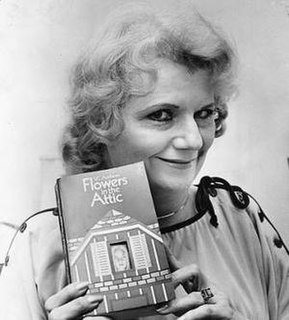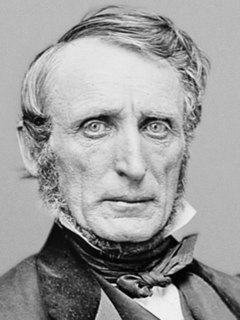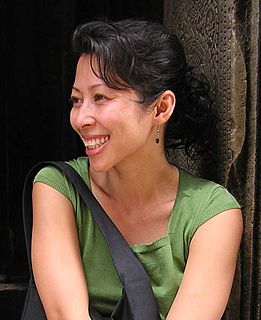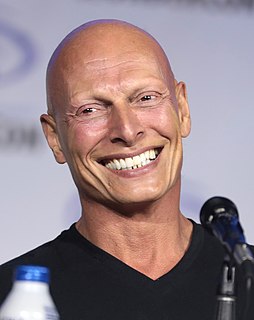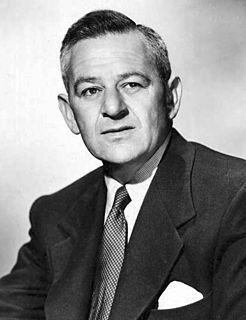A Quote by Virginia C. Andrews
There was a war going on in our house. A silent war that sounded no guns, and the bodies that fell were only wishes that died and the bullets were only words and the blood that spilled was always called pride.
Related Quotes
Words got in the way. The things we felt the hardest--like what it was like to have a boy touch you as if you were made of light, or what it meant to be the only person in the room who wasn't noticed--weren't sentences; they were knots in the wood of our bodies, places where our blood flowed backward. If you asked me, not that anyone ever did, the only words worth saying were I'm sorry.
It's only when movement becomes the most natural state in our lives that we can finally begin to enjoy the motion. And it's only when standing still becomes impossible that we can finally embrace the kinds of changes that are inevitable in our lives.
We were not designed to stand still. If we were, we'd have at least three legs. We were designed to move. Our bodies are bodies that have walked across vast continents. Our bodies are bodies that have carried objects of art and war over great distances. We are no less mobile than our ancestors. We are athletes. We are warriors. We are human.
When I arrived in America, though I had left the war physically far behind, in my mind, the soldiers were still chasing to kill me, my stomach was always hungry, and my fear and distrust kept me from opening up to new friendships. I thought the war was over when I left Cambodia, but I realize now that for survivors and all those involved, the war is never over just because the guns have fallen silent.
During my childhood and teenage years, everything I knew was at war. My mother and father were at war. My sister and I were at war. I was at war with my atypical nature, desperately trying to fit in and be normal. Even my genes were at war - the cool Swiss-German side versus the hot-headed Corsican.
The United States government was proud that, although perhaps 100,000 Iraqis had died in the Gulf War of 1991, there were only 48 American battle casualties. What it has concealed from the public is that 206,000 veterans of that war filed claims with the VA for injuries and illnesses. In the years since that war, 8,300 veterans have died, and 160,000 claims for disability have been recognized by the VA.
I've had times where one of my roommates was moving out of the house in college, and because we were the only black people in that neighborhood, the cops got called, and we had guns drawn on us. Came in the house, without knocking, guns drawn on my teammates and roommates. So I have experienced this.
The war against Iraq is as disastrous as it is unnecessary; perhaps in terms of its wisdom, purpose and motives, the worst war in American history... Our military men and women...were not called to defend America but rather to attack Iraq. They were not called to die for, but rather to kill for, their country. What more unpatriotic thing could we have asked of our sons and daughters...?
I've only ever played 'God of War' while we were shooting it. I've seen a lot of the videos, but while we were shooting 'God of War,' they had a green room for the actors to hang out in, and they always had the newest game on the big screen. So we'd sit there playing 'God of War' to get us into the mood.
The war was an escape to reality... The only thing that mattered were human relationships; not money, not position, not even family... Only relationships with people who might be dead tomorrow were important. It is a sort of wonderful state of mind. It's too bad it takes a war to create such a condition among men.
It was Harry Patch, who was the last living World War I veteran; and by veteran I mean someone who actually fought in the war, he didn't just happen to be in the army at that time, in the Great War. And when the Iraq War started, he was interviewed, and they said, well what do you think of this? And he said, in a very sad voice, "Well, that's why my mates died. We thought we were going to end all that sort of thing."
The twentieth century had dispensed with the formal declaration of war and introduced the fifth column, sabotage, cold war, and war by proxy, but that was only the begining. Summit meetings for disarmament pursued mutual understanding and a balance of power but were also held to learn the strengths and weaknesses of the enemy. The world of the war-or-peace alternative became a world in which war was peace and peace war.
I was born just after the end of World War II, and with my friends in our little suburban backyards in New Jersey, we used to play war a lot. I don't know if boys still play war, they probably do, but we were thrusting ourselves into recent history and we were always fighting either the Nazis or the Japanese.
Of all my children, you were always the hardest on yourself. You were always looking for the right way to behave, so concerned you might make a mistake. But, darling, there are no mistakes. There are only our wishes, our actions, and the consequences that follow both. There are only events, how we cope with them, and what we learn from the coping." "That's too easy," he said. "On the contrary. It's monumentally difficult.
